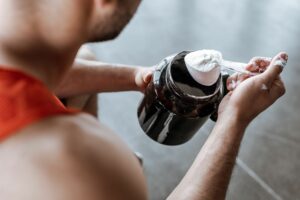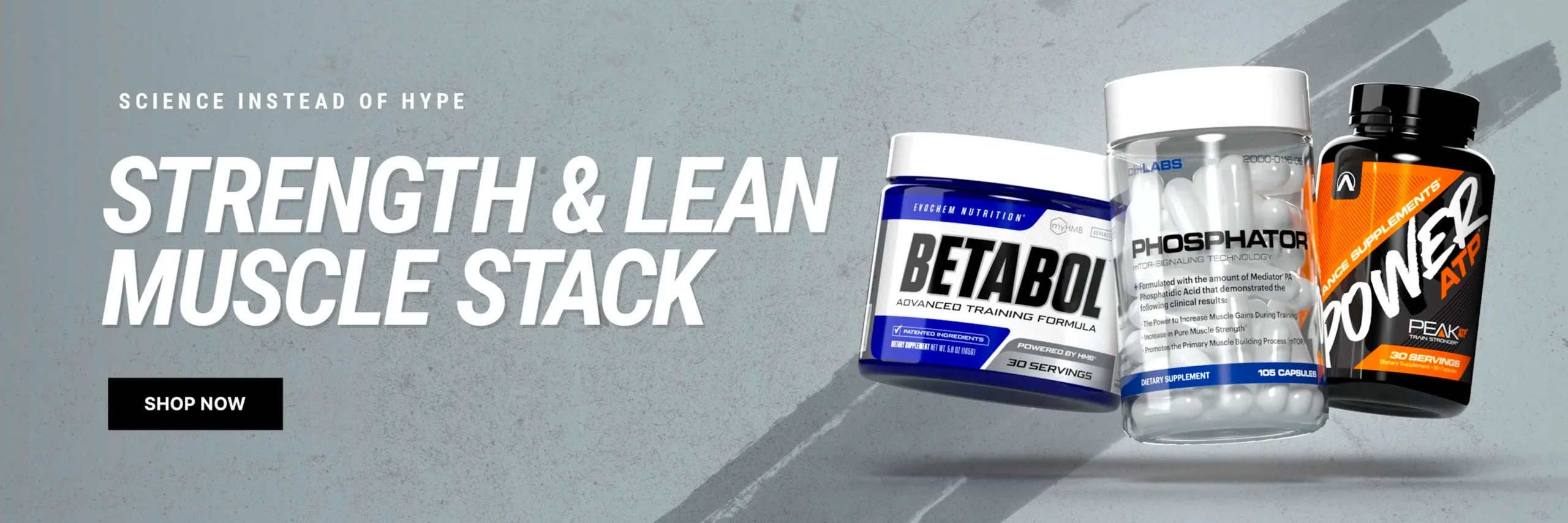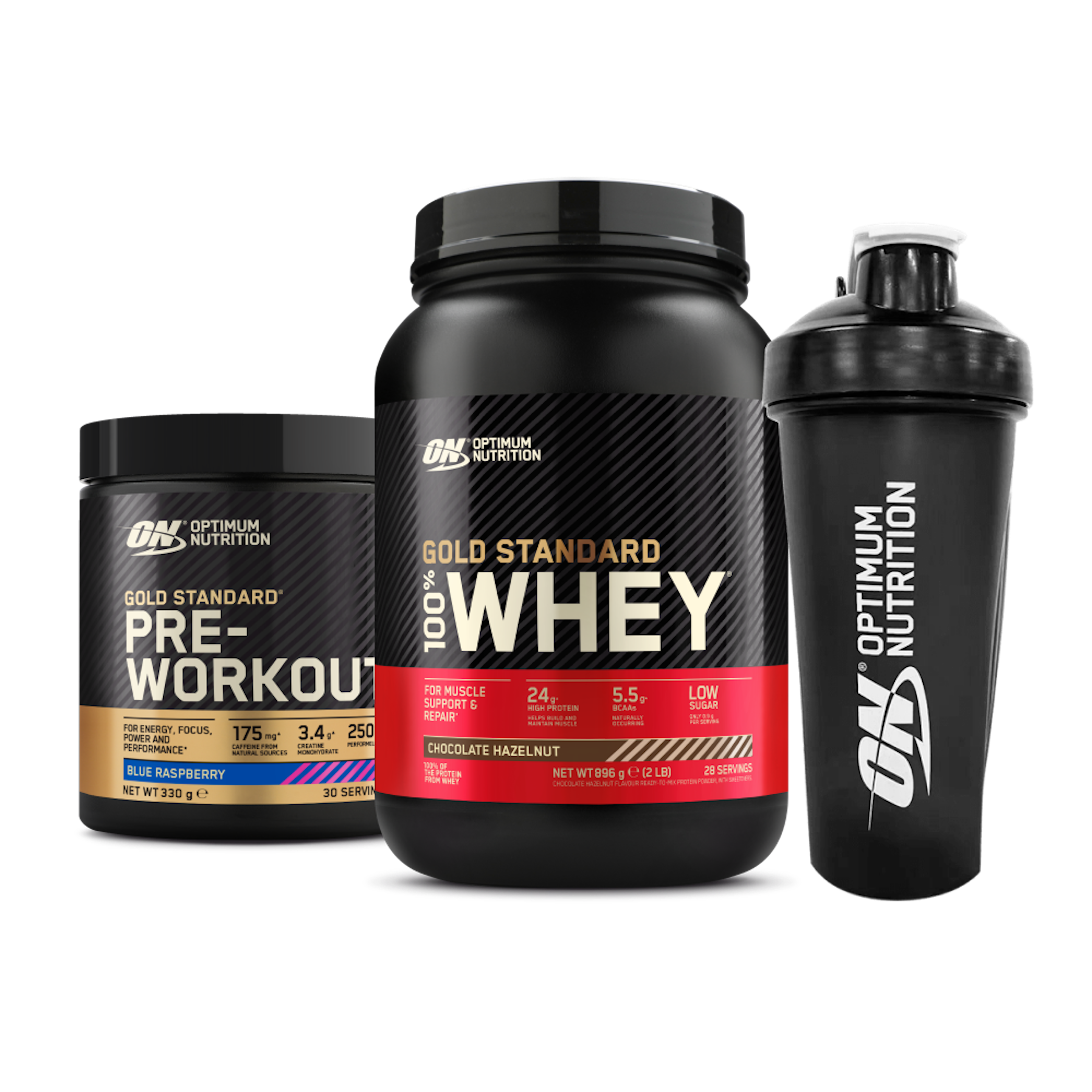If You’re a bodybuilder or athlete who wants to gain muscle, you may take protein powder as part of your regimen. While doing so can be a handy way to feed your muscles quickly, it’s critical to understand the ingredients in the product you are taking.
To get the best results, research and gain knowledge about each component. Some manufacturers include ingredients you’ll want to avoid.
1. Gluten
If you have a food sensitivity to gluten, it can elevate inflammation and can cause health problems. Fatigue, headaches, mood swings, skin irregularities, and hormonal imbalances may start to appear.
2. Artificial Sweeteners
While artificial sweeteners have been approved by the US FDA and EFSA with safe consumption limits, they have their share of controversies. Splenda (sucralose), Equal (aspartame), Sweet’N Low (saccharin), and Newtame (neotame) are some common artificial sweeteners. Some people may experience adverse effects when using them, ranging from weight gain, mood issues, gastric distress, or headaches. Research also indicates that some artificial sweeteners may be harmful to your gut, although further studies are needed to confirm this. Over the long term, artificial sweeteners are allegedly thought to alter the microorganisms that help you digest food.
Related Articles: Eating More Protein Helps “With Muscle Building, Weight Maintenance, And Fat Loss”
3. Vegetable Oils and Fats
Manufacturers of protein powder will often add vegetable oils and fats to increase richness. Unfortunately, this addition means you’ll also be consuming fats derived from processed, hydrogen-needed sources. They contain trans fats, which are considered more harmful than saturated fats. Trans fats are known to lower good HDL cholesterol and raise bad LDL cholesterol levels.
4. Milk Powders and Solids
Low-quality protein powders will often have milk solids and skim milk powders added. These ingredients are high in lactose sugars and can cause loose stools, bloating, and gastrointestinal distress.
Check Out Our List Of The Best Supplements For Building Muscle, Shredding Muscle, Recovery, and Great Health, and Wellness Products! Purchase IFBNewsfeed.Org‘s Apparels Here: IFBNewsfeed.Org
5. Soy Protein
While soy is a complete protein derived from a plant source, it can be genetically modified and exposed to pesticides. Soy protein also contains isoflavones. There were concerns that these phytoestrogen compounds may make estrogen and can function as endocrine disruptors, causing hormonal disturbances. However, existing research states that soy consumption by men does not result in any feminizing effects.
6. Gums and Fillers
Many protein powder manufacturers use gums as thickeners and stabilizers. Common ones include xanthan, locust bean, cellulose, guar, and gellan. Once taken into your body, they can be hard to digest. As a result, these stabilizers can sit in your gut for extended periods, feed bacteria and cause gas. You may also experience diarrhea.
The best protein powders will rely on something other than a cheap filler. The manufacturers of these products choose beneficial ingredients. One natural ingredient that may be used as a healthy filler is flaxseed powder. It has several health benefits, such as the inclusion of omega-3 fatty acids, which are helpful for your diet but often challenging to get. It can also help prevent constipation and lower cholesterol levels due to it being high in alpha-linolenic acid.
 7. Artificial and Natural Flavors
7. Artificial and Natural Flavors
Artificial flavors are far from being healthy. Synthesized in laboratories, they are often used as a common ingredient when a manufacturer doesn’t want to provide more details. A protein powder manufacturer may add emulsifiers, preservatives, solvents, and other additives and qualify them as “natural” under current regulations.
8. Lecithins
You’ve probably come across lecithin if you’ve read many food labels. It’s a common food additive made from sunflower or soy. If the manufacturer doesn’t specify the type, it’s probably using the cheaper of the two, which is derived from soy. Avoiding soy lecithin is essential as it is derived from one of the most genetically modified crops on earth. In addition, acetone and hexane or chemicals are often used to extract it. Sunflower lecithin is preferred as it is nonallergenic and less likely to be derived from genetically modified crops.
Related Articles: Check Out “The Best Ingredients” To Make A Lean Protein Shake For Muscle Growth And Recovery
9. Casein and WPC
Whey protein concentrate (WPC) and casein are dairy-derived proteins that can be high in lactose sugar. While these may not be food additives, they are byproducts of yogurt and cheese production. Using these ingredients may cause gastrointestinal distress, flatulence, and bloating. They are also known to cause digestive issues, especially if you have lactose intolerance or irritable bowel syndrome.
For lactose-intolerant individuals who want to use a whey protein product, whey hydrolysate and isolate options are preferred as they have lower carb and fat levels than WPC.
 Do Protein Powders Contain Ingredients That May Not Be Listed?
Do Protein Powders Contain Ingredients That May Not Be Listed?
In early 2022, the Clean Label Project, a nonprofit group, released a report on the best and worst protein powder products. After testing 134 top-selling protein powders, they found some interesting results. Elevated levels of mercury, lead, cadmium, and arsenic were found in some of the finished products they reviewed. These heavy metals have been linked to cancer and other health conditions. BPA (bisphenol-A) was also found, which is used to make plastics. They created an infographic of their study and a white paper you can review.
Harmful metals and chemicals contained in protein powders can be detected through lab tests. Examining reports from independent laboratory agencies like Labdoor can also be helpful.
Summary
Reading labels and understanding each ingredient is essential when investigating a protein powder for building muscle. The process of muscle building is a slow endeavor that takes discipline and hard work. Training and nutrition are two instrumental components. This hard work can be seen in documentaries such as Generation Iron playing on Prime Video, which follows professional bodybuilders who train and compete for the 2012 Mr. Olympia title.
Related Articles:
- Whey Protein Powder: “Six Star Whey Protein Plus”, “Whey Protein Isolate & Peptides”, “Lean Protein Powder for Muscle Gain ”, “Muscle Builder for Men And Women”
- Researchers Find Out “That Eating a Certain Protein” Is Related To Developing Depression

- Get a refreshing blend of vitamins, amino acids, and natural caffeine for a calm stimulation with LivPur ENERGY!
- Free Shipping on US orders over $49 USD and 5 lbs or less at eVitamins.com!
- A1Supplements.com – Lose Fat, Gain Muscle!
For More News And Daily Updates, Follow IFBNewsfeed.Org on Facebook, Twitter, and Instagram. Comment, Like, And Share With Everyone Who May Need To Be Updated With The Most Recent Fitness/Bodybuilding/Powerlifting And CrossFit News.






